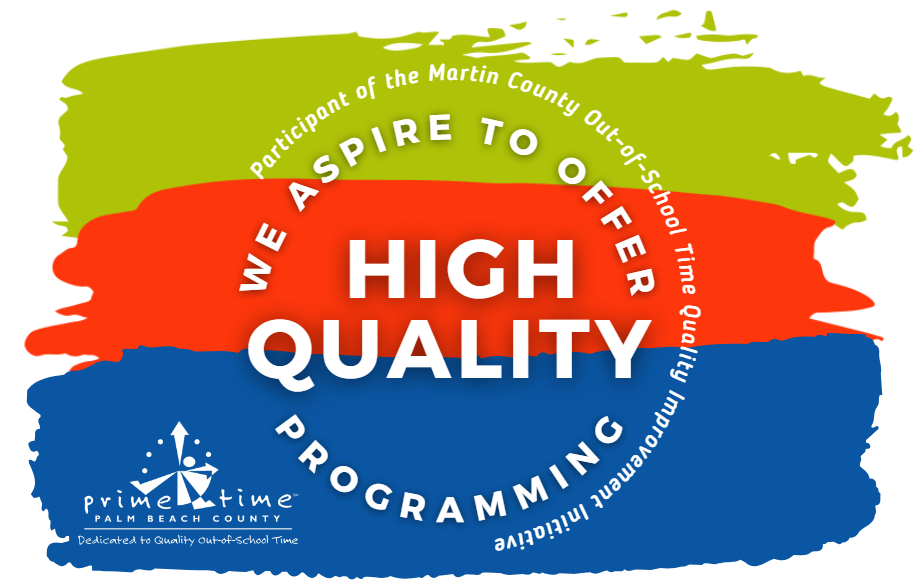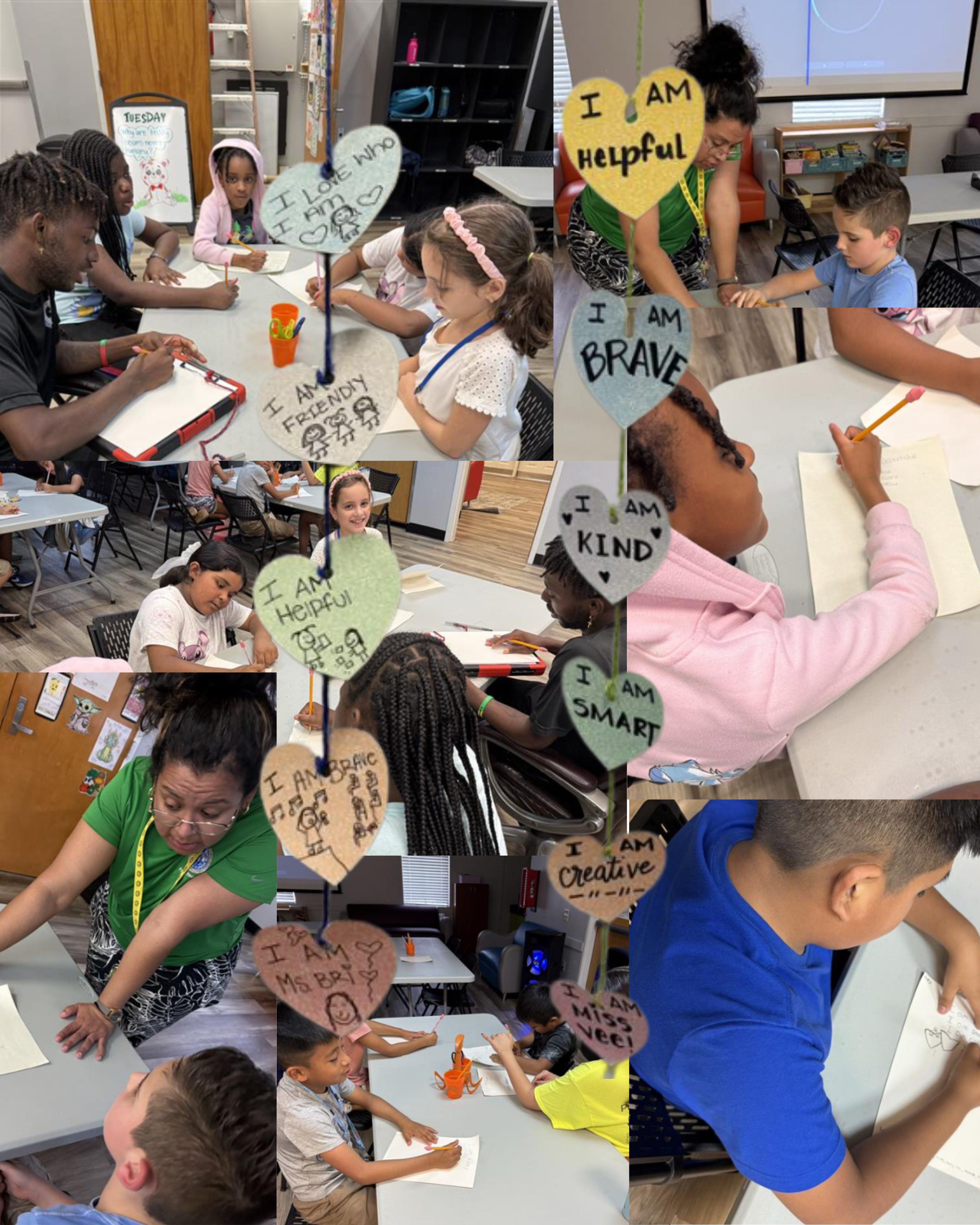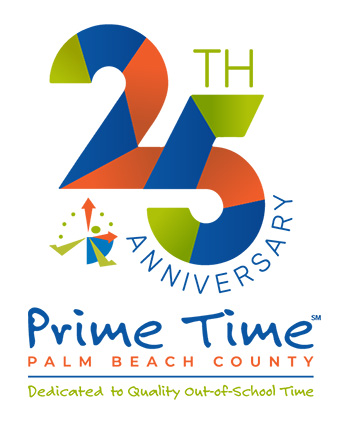The Martin County Out-of-school Time Quality Improvement Initiative supports out-of-school time (OST) programs, funded by the Children's Services Council of Martin County with ongoing quality coaching, onsite training, mentoring of youth development strategies and professional development. OST programs support children and youth before school, after school, summer, weekends and during seasonal breaks.

A seal that indicates that the program is committed to offering high quality programing and that the program is a participant of the Quality Improvement Initiative.
Stories from Martin County

The Martin County Board of County Commissioners - REACH (Residents Empowering All Children's Hope) Program in Stuart, Florida celebrated Valentine's Day with a self-love activity called, I Am Love. I Am Love focused on the youth identifying the traits they admire in themselves, brainstorming a list of personal attributes that they love about themselves and creating an affirmation chain to display for everyone to see.
Join the OST Registry
Step 1: Attend and complete the self-paced online orientation. This online, self-guided session will take you through modules to complete the orientation in approximately 15 minutes.
Step 2: Create your registry account. At the end of the orientation, you will be provided with a link to the registry application to create your account. Creating your Registry account takes about 15-20 minutes to complete.
Martin County Trainings

Youth Planning Basics - VIRTUAL
February 18, 2026 - 9:00 a.m. - 11:00 a.m.
When youth plan, they practice the critical life skills of thinking through an activity or project and setting goals and intentions. This training introduces afterschool staff to strategies that provide youth with structured planning opportunities for everyday activities in your program. In this hands-on training, you will practice tangible lessons that you can put into practice with youth right away.
Training Objectives:
Participants will:
- List 4 ways adults can support youth in planning for activities.
- Practice planning activities to use with youth that will engage them in setting goals and writing down a plan.

Raising the Cultural Vibration in OST - IN-PERSON
February 21, 2026 - 9:00 a.m. - 11:00 a.m.
Are the youth in your program polite, well-behaved and cooperative? Do you sometimes struggle with behavioral issues and maybe even conflict? Many times, we treat the symptom of the problem; we take action for bad behavior by implementing punishment or negative reinforcement. However, what if there was an alternative way to address these problems? By creating a culture of high expectations and positive community, we can shape behavior before it becomes an issue. Come and learn techniques to build an environment that supports positive behavior by raising the cultural vibration in OST.
Training Objectives:
Participants will:
- Define culture as it relates to the out-of-school time program space.
- List three ways to improve the culture of the out-of-school environment.
- Apply specific techniques to support positive behavior in your program.
Training Testimonial
After Reframing Behavior Management training concluded on October 19, 2022, including 45 attendees, Prime Time professional development manager asked what their take-away was from the three-hour session.
Hear from Candice Delions from the Boys & Girls Clubs Martin County - Bill and Barbara Whitman Branch in the video below.
Q&A
Q: Are programs in Martin County offered incentives and scholarships?
A: Not at this time.
Q: Who is the point-of-contact for this Initiative?
A: Lynn Stanavitch, Prime Time Quality Improvement Initiative Project Manager. Her contact information is located on the right.
Q: Can we attend events and trainings offered by Prime Time in Palm Beach County?
A: Not at this time. Please register for the trainings that are offered on this webpage.
More Information
Contact
DANIEL HUDSPETH
Quality Improvement Initiative Project Manager
561-327-4171 ext. 131
dhudspeth@primetimepbc.org
Afterschool Directors Leave the Inauguration of a New School Year at Prime Time Gathering with Smiles and Desire to Implement Lessons Learned
Every year Prime Time Palm Beach County calls afterschool directors who are participating in the Palm Beach County Quality Improvement System to a gathering to network, learn and engage in interactive activities they can use back at their programs. More than 100 afterschool directors joined in-person on Friday, September 2, 2022, for the first time…
Expanded Learning Opportunity Brings Marinelife Education to Youth
It’s hard to imagine many adults who haven’t heard the story of the Tortoise and the Hare. The classic children’s book teaches youth one of their first life lessons, “slow and steady wins the race.” Through this story, youth learn the value of patience. As youth get older many learn the names of four of…




